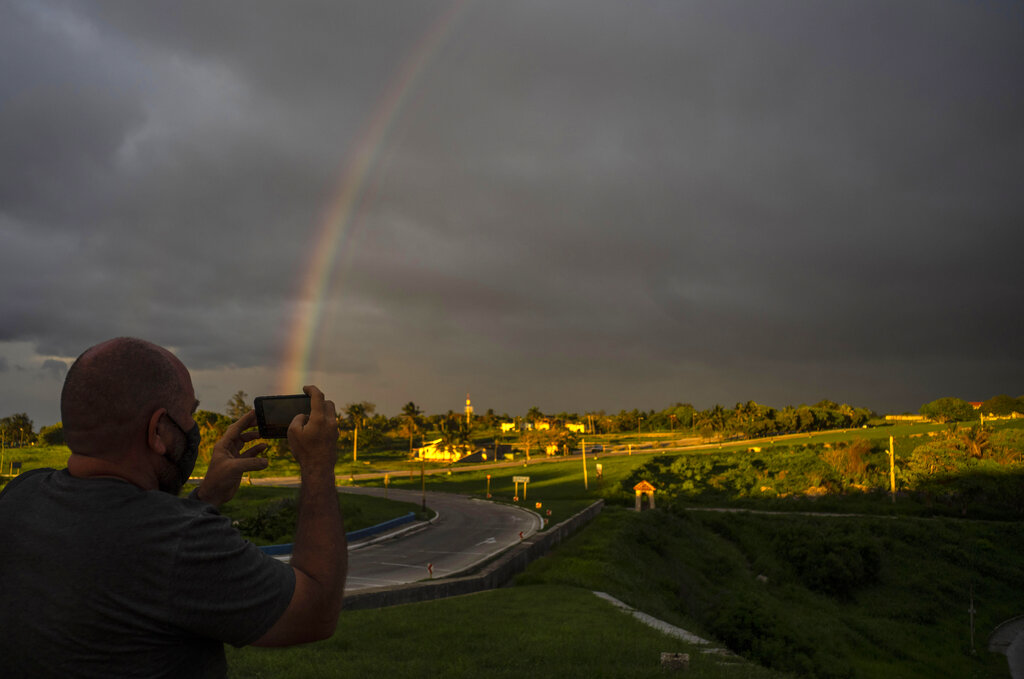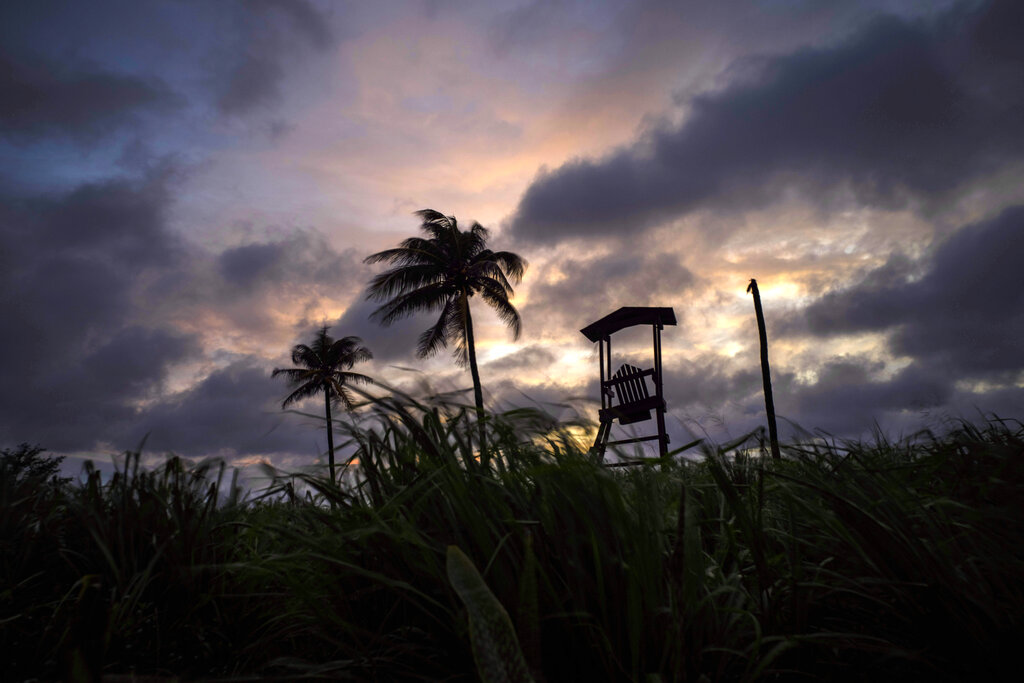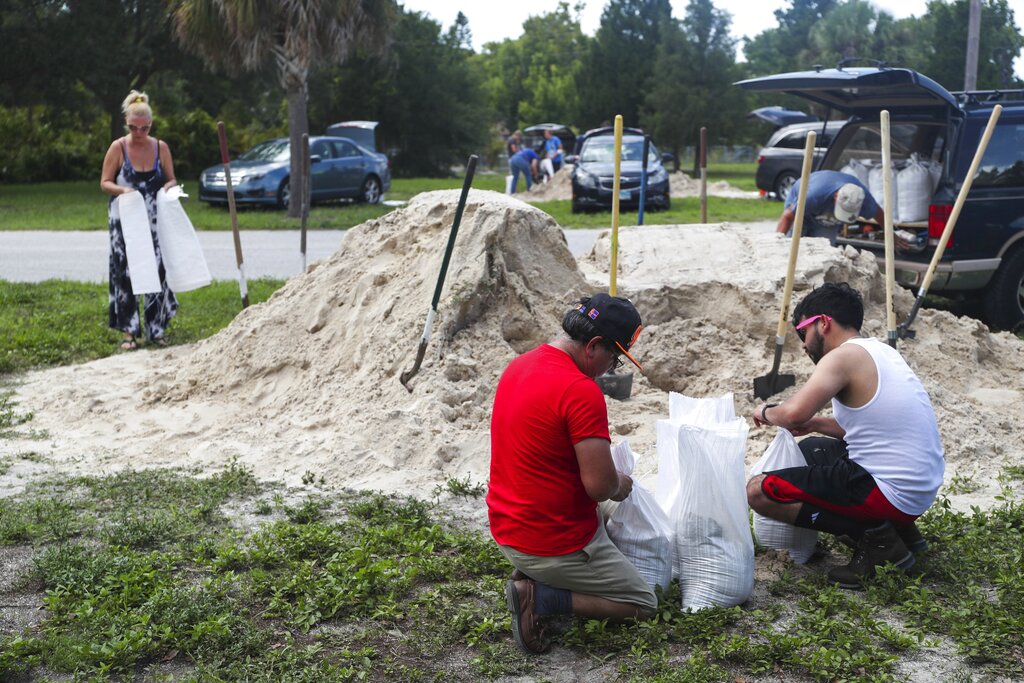Elsa becomes hurricane, landfall expected Wednesday morning
FORT LAUDERDALE (NewsNation Now) — A storm that has lashed the Caribbean and the Florida Keys with pounding rain and gusty winds and complicated the search for survivors in a deadly condominium collapse has strengthened into a hurricane.
The National Weather Service said Tuesday that Hurricane Elsa was packing winds as high as 75 mph as it hurtled toward Florida’s northern Gulf Coast. The Category 1 storm is expected to make landfall between 8 a.m. and 9 a.m. Wednesday, somewhere between the Tampa Bay area and the Big Bend region.
In addition to damaging winds and heavy rains, the Miami-based U.S. National Hurricane Center warned of life-threatening storm surges, flooding and isolated tornadoes. A hurricane warning has been issued for a long stretch of coastline, from Egmont Key at the mouth of Tampa Bay to the Steinhatchee River in Florida’s Big Bend area. Landfall was expected somewhere in between.
The Tampa area is highly vulnerable to storm surge because the offshore waters and Tampa Bay are quite shallow, experts say. Gov. Ron DeSantis said the area would take a hard hit from the storm overnight.
Now is “not a time to joyride” because “we do have hazardous conditions out there,” DeSantis said at a news conference Tuesday.
The weather posed new threats to the ramped-up rescue effort at the collapsed South Florida condo building. Bands of rain were expected to soak the rubble of the Champlain Towers South, which collapsed June 24, killing at least 36 people and leaving more than 100 people missing. The crews have worked through rain, but must pause when lightning threatens, and a garage area in the rubble already filled with water on Monday, officials said.
Gov. Ron DeSantis expanded a state of emergency on Monday to cover a dozen counties where Elsa was expected to make a swift passage on Wednesday, and President Joe Biden approved an emergency declaration for the state ahead of the storm.
Forecasters predicted Elsa would then hit coastal Georgia and South Carolina. Georgia’s coast was under a tropical storm watch, as was the South Carolina coast from the Mouth of St. Marys River to South Santee River.
Cuban officials evacuated 180,000 people against the possibility of heavy flooding from a storm that already battered several Caribbean islands, killing at least three people. But Elsa spent Sunday and much of Monday sweeping parallel to Cuba’s southern coast, sparing most of the island from significant effects.
It made landfall in Cuba near Cienega de Zapata, a natural park with few inhabitants, and crossed the island just east of Havana. Tuesday’s rainfall across parts of Cuba was expected to reach 10 inches (25 centimeters) with isolated maximums of 15 inches (38 centimeters), resulting in significant flash flooding and mudslides. But there were no early reports of serious damage on the island.
“The wind is blowing hard and there is a lot of rain. Some water is getting under the door of my house. In the yard the level is high, but it did not get into the house,” Lázaro Ramón Sosa, a craftsman and photographer who lives in the town of Cienega de Zapata, told The Associated Press by telephone.
Tropical storm conditions were continuing over central and western Cuba Tuesday morning, even as the storm reached Florida. Tropical storm warnings were posted for the Florida Keys from Craig Key westward to the Dry Tortugas and for the west coast of Florida from Flamingo northward to the Ochlockonee River.
Elsa’s westward shift spared the lower Florida Keys a direct hit, but the islands were still getting plenty of rain and wind on Tuesday.
Elsa was the first hurricane of the Atlantic season until Saturday morning and caused widespread damage on several eastern Caribbean islands Friday. As a tropical storm, it resulted in the deaths of one person on St. Lucia and of a 15-year-old boy and a 75-year-old woman in the Dominican Republic.
Elsa is the earliest fifth-named storm on record, said Brian McNoldy, a hurricane researcher at the University of Miami.
This story is developing. Refresh for updates.
The Associated Press and NewsNation affiliate WFLA contributed to this report.





















